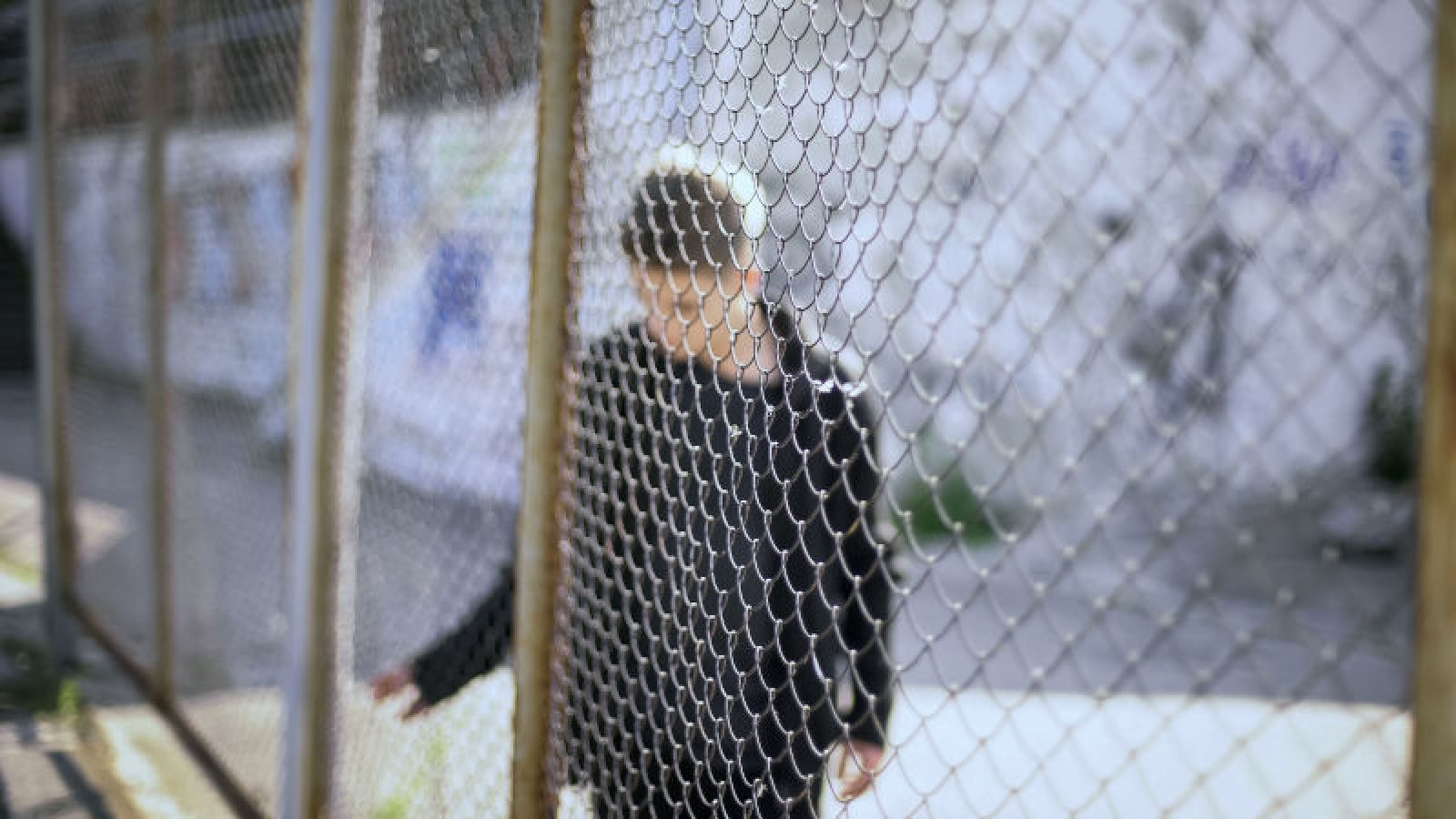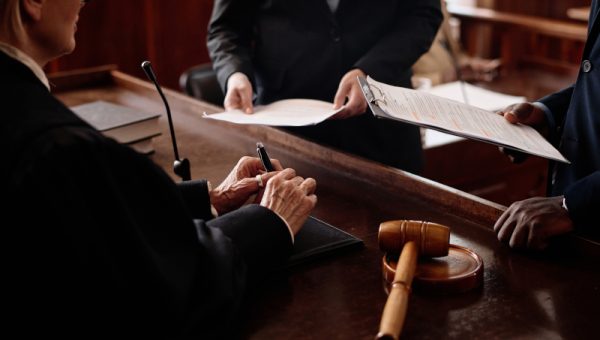The juvenile justice system in Queensland operates under a framework distinct from that of adults, acknowledging the unique circumstances and needs of young offenders. This system is designed to balance the protection of the community with the rehabilitation and welfare of juveniles. In Queensland, a juvenile is defined as an individual under the age of 18 who has come into contact with the law either due to committing an offence or being alleged to have done so.
Understanding the legal rights and processes for juvenile offenders is crucial, not only for the young individuals involved but also for their families and legal guardians. The complexity of the juvenile justice system, with its own set of rules and procedures, often requires expert navigation to ensure that the rights of these young individuals are protected and that their cases are handled with the appropriate sensitivity and foresight.
It’s important to recognise that juvenile offences, and how they are addressed by the legal system, have far-reaching implications. These early interactions with the justice system can shape a young person’s future, highlighting the necessity for informed, compassionate legal guidance. In Queensland, the emphasis is on diverting juveniles away from the criminal justice system where possible, focusing on rehabilitation and restorative justice approaches that acknowledge their capacity for change and growth.
In the following sections, we will explore the structure of the juvenile justice system in Queensland, key considerations for handling juvenile offences, and the critical role of specialised legal support in navigating this complex landscape.
Understanding Juvenile Offences
In Queensland, juvenile offences refer to criminal acts committed by individuals under the age of 18. These offences range from minor transgressions like petty theft and vandalism to more serious crimes such as assault or drug-related activities. The nature of these offences often reflects various factors, including the young person’s environment, social influences, and developmental stage.
One of the key differences between juvenile and adult offences lies in the approach to punishment and rehabilitation. The juvenile justice system in Queensland is geared more towards rehabilitation and reintegration rather than punishment. This approach is rooted in the understanding that young offenders have a greater capacity for change and development compared to adults. Consequently, the legal responses to juvenile offences often involve educational and community-based programs, counselling, and other interventions aimed at addressing the underlying causes of the offending behaviour and preventing reoffending.
The Legal Age in Queensland
The age of criminal responsibility in Queensland is 10 years. This means that children under 10 cannot be charged with a crime. However, for children aged between 10 and 14 years, there is a presumption of incapacity to commit a crime, known as “doli incapax”. To charge a child in this age group, it must be proven that they understood the wrongfulness of their actions at the time the offence was committed.
Special considerations are given to young offenders to acknowledge their vulnerability, lack of maturity, and the potential for rehabilitation. The juvenile justice system in Queensland places a strong emphasis on diverting young offenders away from the formal legal system, using cautioning and community conferencing as alternatives to court proceedings. When cases do proceed to court, they are typically heard in a Children’s Court, where the procedures are more informal, and the environment is less intimidating, with a focus on the best interests of the child.
These measures underscore Queensland’s commitment to a juvenile justice system that recognises the distinct needs of young offenders and aims to guide them towards positive pathways, rather than entrenching them in the criminal justice system.
Legal Rights of Juvenile Offenders
Understanding the legal rights of juvenile offenders in Queensland is fundamental to ensuring that their treatment within the justice system is fair and just. These rights are designed to protect the interests of young individuals who may not fully comprehend the legal complexities of their situation.
Key legal rights of juvenile offenders include:
- Rights During Arrest: Juveniles have the right to remain silent and must be informed of this right. They also have the right to contact a parent, guardian, or lawyer as soon as possible after being arrested.
- Legal Representation: Juveniles have the right to legal representation throughout the legal process. This is crucial to ensure that their case is presented effectively, and their rights are upheld.
- Access to Legal Aid: If a juvenile or their family cannot afford legal representation, they may be eligible for legal aid. This ensures that all juveniles have access to legal support, regardless of their financial situation.
- Fair Treatment: Juveniles have the right to be treated fairly and justly throughout the legal process, with consideration given to their age and maturity.
Role of Legal Guardians
The involvement of legal guardians is integral in the juvenile justice process in Queensland. Parents or guardians play a key role in providing emotional and practical support to the young offender, and their involvement can significantly impact the proceedings and outcomes.
Responsibilities of legal guardians include:
- Support During Legal Proceedings: Guardians should be present during police interviews, court hearings, and other legal processes to provide support and ensure the juvenile understands the proceedings.
- Advocacy: Guardians often act as advocates for the juvenile, ensuring that their rights and best interests are represented and respected.
- Communication with Legal Representatives: They play a key role in communicating with legal representatives, helping to gather information and facilitate discussions about the case.
- Impact on Legal Outcomes: The involvement of guardians can positively influence the outcomes of legal proceedings. Their support and advocacy can contribute to decisions that focus on rehabilitation and the well-being of the juvenile.
The active participation of legal guardians in the juvenile justice process underscores the system’s emphasis on supporting and rehabilitating young offenders, rather than solely focusing on punishment. Guardians, along with legal representatives, form a critical support network that guides the juvenile through the justice system, aiming to achieve outcomes that are in their best interests and conducive to their future growth and development.
The Queensland Juvenile Justice Process
The juvenile justice process in Queensland is designed with a focus on rehabilitation, aiming to prevent young offenders from re-entering the criminal justice system. It is tailored to address the unique needs and vulnerabilities of juveniles, taking into consideration their age, maturity, and potential for rehabilitation.
Key stages in the legal process for juvenile offenders include:
- Initial Police Interaction: This is often the first point of contact a juvenile has with the criminal justice system. How police handle these interactions can significantly impact the young person’s trajectory through the system.
- Investigation and Charging: Depending on the evidence, a decision is made on whether to charge the juvenile with an offence.
- Bail and Remand Considerations: Decisions are made about whether the juvenile should be released on bail or remanded in custody.
- Court Proceedings: If the case proceeds to court, it follows a formal legal process, albeit in a more youth-friendly environment.
- Sentencing: If found guilty, the juvenile faces sentencing. However, the focus is on rehabilitation rather than punishment.
- Post-Court Support and Rehabilitation: After the court process, the emphasis shifts to reintegrating the juvenile into society, often involving support services and programs.
Police Handling of Juvenile Cases
In Queensland, the initial police interaction with a juvenile offender is crucial. The police are required to respect the rights of the juvenile, which include the right to silence and the right to legal representation. Police must also make efforts to inform the juvenile’s parents or guardians as soon as possible.
A juvenile can be taken into custody in circumstances where they are suspected of having committed a serious offence, or for their safety or the safety of others. However, the time spent in custody is usually as brief as possible, and police are encouraged to use alternatives to custody, such as issuing a caution or a notice to appear in court at a later date.
Court Proceedings for Juveniles
Juvenile cases in Queensland are typically handled by the Children’s Court, which is specifically designed to deal with matters involving young offenders. This court operates under principles that emphasise the well-being and rehabilitation of the juvenile, and proceedings are generally less formal than in adult courts.
During these proceedings, legal representation is crucial to ensure that the juvenile’s rights are protected and their case is presented effectively. In addition to legal counsel, the role of guardians is also significant. Guardians are expected to support the juvenile throughout the process, providing guidance and ensuring that they understand the proceedings and their implications.
The court process for juveniles is designed to be fair and just, while also taking into account the age, maturity, and circumstances of the young offender. The ultimate goal is to encourage rehabilitation and reduce the likelihood of future involvement with the criminal justice system.
Sentencing and Penalties for Juveniles
In Queensland, the sentencing and penalties for juvenile offenders are distinct from those for adults, with a pronounced focus on rehabilitation and education rather than punitive measures. This approach acknowledges the developmental stage of juveniles and their potential for positive change.
Common penalties for juvenile offenders may include:
- Community Service Orders: These involve the juvenile participating in community work, helping them to contribute positively to society and learn valuable life skills.
- Probation: This involves the juvenile being supervised and following certain conditions for a specified period, to prevent reoffending.
- Good Behaviour Bonds: A juvenile may be released on the condition that they do not commit any further offences within a set period.
- Fines or Restitution Orders: In some cases, a fine or a restitution order to pay for damages may be imposed.
- Detention: Although less common, detention may be used for serious offences or where other measures have been ineffective. Even in detention, the focus remains on rehabilitation.
Diversion Programs and Alternatives to Detention
Diversion programs play a significant role in Queensland’s juvenile justice system, offering alternatives to traditional court proceedings and detention. These programs aim to divert young offenders away from the criminal justice system, focusing on rehabilitation, education, and community engagement.
Key aspects of diversionary programs include:
- Rehabilitation Focus: These programs often involve counselling, education, and life skills training, addressing the underlying issues that contributed to the offending behaviour.
- Community Engagement: Many programs include community service components, helping juveniles to develop a sense of responsibility and connection to their community.
- Eligibility Criteria: Eligibility for diversionary programs typically depends on the nature of the offence, the juvenile’s age, their criminal history, and their willingness to participate.
Examples of diversion programs in Queensland include:
- Youth Justice Conferencing: This program brings together the juvenile, their family, the victims, and community representatives to discuss the impact of the crime and agree on a plan to repair the harm caused.
- Police Referrals to Youth Justice: Police may refer juveniles to Youth Justice services for support and intervention rather than proceeding with formal charges.
- These programs are designed to address the needs of juvenile offenders constructively, promoting their reintegration into society as responsible and contributing members. By prioritising such alternatives to detention, Queensland’s juvenile justice system demonstrates its commitment to the long-term well-being and rehabilitation of young offenders.
Support Services for Juveniles and Families
In Queensland, a range of support services is available for juvenile offenders and their families, recognising that comprehensive support is crucial for the rehabilitation process and for preventing re-offending. These services aim to address the various challenges faced by young offenders and provide support to their families, who play a vital role in their rehabilitation journey.
Key aspects of these support services include:
- Counselling and Mental Health Services: Offering psychological support to address underlying issues such as substance abuse, behavioural problems, or mental health conditions.
- Family Support Programs: These programs assist families in understanding the legal process, offer guidance on how to support their juvenile family member, and help in managing the impact of legal issues on family dynamics.
- Legal Assistance: Providing legal advice and representation to ensure that juveniles and their families understand their rights and obligations throughout the legal process.
- Community-Based Services: Involving community organisations that offer mentorship, life skills training, and recreational activities to keep juveniles engaged in positive community activities.
Educational and Rehabilitation Programs
Educational and rehabilitation programs play a pivotal role in the rehabilitation of juvenile offenders in Queensland. These programs are designed to provide juveniles with the skills and knowledge necessary to reintegrate into society successfully.
The role of educational rehabilitation programs involves:
- Academic Education: Continuing education is crucial for juveniles, ensuring they do not fall behind in their studies while dealing with legal issues.
- Vocational Training: Offering training in various trades and skills, providing juveniles with practical qualifications for future employment.
- Life Skills Development: Teaching important life skills like financial literacy, communication, and problem-solving to prepare juveniles for independent living.
Examples of successful rehabilitation initiatives include:
- Restorative Justice Programs: Initiatives that involve offenders in making amends with the victims and the community, helping them understand the impact of their actions.
- Mentorship Programs: Pairing juveniles with positive role models who provide guidance, support, and encouragement.
These support services and educational and rehabilitation programs demonstrate Queensland’s commitment to not only holding juvenile offenders accountable for their actions but also to providing them with the tools and resources necessary for personal development and successful reintegration into society.
Recent Developments and Trends
The juvenile justice landscape in Queensland is subject to ongoing developments and trends, reflecting changes in society, legal practices, and approaches to youth offending. Keeping abreast of these changes is crucial for those involved in the juvenile justice system, whether as legal professionals, policymakers, or families of juvenile offenders.
Recent changes in laws or practices may include:
- Legislative Amendments: Updates to laws governing juvenile justice to align with current social values and research findings on youth development and rehabilitation.
- Policy Shifts: Changes in policy that influence how juvenile offenders are treated within the legal system, such as increased emphasis on diversion programs and community-based interventions.
- Technological Advancements: The use of technology in monitoring and supporting juvenile offenders, including electronic monitoring or online rehabilitation programs.
Trends in juvenile offending and justice in Queensland typically involve:
- Changing Patterns of Offending: Shifts in the types of offences committed by juveniles, potentially influenced by factors like social media, economic conditions, or community changes.
- Focus on Mental Health and Well-being: An increasing recognition of the impact of mental health on juvenile offending and the integration of mental health services within the justice response.
- Collaborative Approaches: Greater collaboration between various agencies, including law enforcement, social services, education, and community organisations, to provide a comprehensive support network for juveniles.
- Restorative Justice Practices: A growing emphasis on restorative justice, focusing on repairing harm and fostering understanding between offenders, victims, and the community.
These developments and trends indicate a dynamic and evolving approach to juvenile justice in Queensland, one that seeks to balance the need for accountability and community safety with the long-term well-being and rehabilitation of young offenders. By staying informed of these changes, stakeholders can better navigate the juvenile justice system and contribute to more effective and positive outcomes for young people in conflict with the law.
Challenges in the Juvenile Justice System
Over-representation of Indigenous Youth
A significant issue within Queensland’s juvenile justice system is the disproportionate representation of Indigenous youth. This reflects deeper societal issues, necessitating targeted, culturally sensitive interventions.
Mental Health Concerns
Many juveniles within the system struggle with mental health issues. Integrating mental health care into the juvenile justice approach is critical for addressing these underlying challenges.
Educational Disadvantages
Disruptions in education are common among juvenile offenders. Providing consistent educational support and opportunities is vital for their prospects.
Recidivism
The cycle of re-offending remains a persistent challenge, pointing to the need for more effective and sustained rehabilitation strategies.
Efforts to address these challenges include culturally tailored programs, mental health integration, educational support, and evidence-based practices to curb recidivism.
Advocacy and Legal Reforms
Advocacy groups are instrumental in driving reform in the juvenile justice system. They champion the rights of juvenile offenders and promote systemic changes for better outcomes.
Policy Advocacy
These groups advocate for policies that emphasise rehabilitation over punitive measures, ensuring a more humane approach to juvenile justice.
Legal Representation and Rights Protection
Ensuring juveniles have access to quality legal representation and that their rights are safeguarded is a primary focus of advocacy efforts.
Community Engagement
Building strong community networks supports juveniles and works towards preventing youth offending.
Future Directions
Prospective improvements in the juvenile justice system may include enhanced restorative justice measures, increased mental health and educational support, legal reforms for better rights protection, and strengthened collaboration between various sectors.
These initiatives aim to establish a more balanced, effective, and compassionate juvenile justice system in Queensland, focusing on both immediate rehabilitation needs and long-term societal integration.
Key Takeaways
This overview of Queensland’s juvenile justice system highlights several key points:
- Juvenile offences differ from adult offences, with a focus on rehabilitation and education rather than punishment.
- The legal process for juveniles involves distinct stages, from initial police interaction to court proceedings, emphasising fairness and the juvenile’s best interests.
- Legal rights are crucial, including rights during arrest and access to legal aid and representation.
- Sentencing and penalties aim to rehabilitate, with a preference for community-based interventions over detention.
- Support services play a vital role in the rehabilitation of juvenile offenders and their reintegration into society.
- Recent developments and trends in the system reflect evolving societal and legal approaches to juvenile offending.
- Challenges such as the over-representation of Indigenous youth and mental health issues need ongoing attention and innovative solutions.
Final Thoughts on Navigating the Juvenile Justice System
Navigating the juvenile justice system in Queensland requires an understanding of its unique procedures and a focus on the rehabilitation and future well-being of the young offender. The system’s complexity underscores the need for specialised legal and community support to ensure that young people are treated fairly and given the opportunity to learn from their mistakes.
Conclusion
A comprehensive understanding of Queensland’s juvenile justice system is essential for effectively supporting young offenders. This system, with its emphasis on rehabilitation and education, offers a path for juveniles to learn from their experiences and reintegrate into society positively. It is crucial for those involved – whether as offenders, guardians, or members of the community – to be aware of their legal rights and the support services available. Seeking legal assistance and taking advantage of support networks can make a significant difference in navigating this system, ultimately contributing to better outcomes for young offenders and the community at large.







